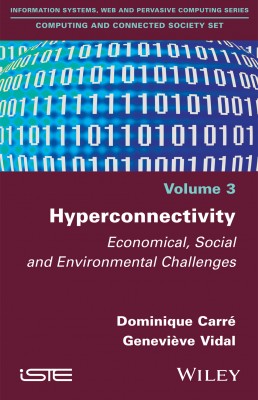
Through its socio-historic, socio-economic and socio-political approaches, the Computing and Connected Society set offers a critical reflection on the omnipresenence of computing within society, and the complex issues this brings with it, related to cybersurveillance, individual and collective freedom, environmental concerns and hyperconnectivity, among others.
At any given moment, network users (who are both receivers and contributors) must make a choice between acceptance and subordination in order to access new online services, in exchange for their data being traced. Their usage is thus part of a negotiated renunciation.
Analysis of the social acceptability of the exploitation of data and relational practices on digital networks reveals their increasingly unsustainable character. These mechanisms are far from virtual and have powerful material consequences, most notably impacting on the production of greenhouse gases and climate change.
This book therefore addresses the hyperconnectivity engendered by the industrialization of digital services on networks based on a socio-economic model that relies on free or low rates, modern communication practices and incessant solicitations.
1. The Technological Offer and Globalized Services.
2. The Hyperconnected Economy.
3. Social Appropriation and Digital Culture.
4. Renunciation and Negotiations.
5. Environmental Issues.
Dominique Carré is Professor and Director of Communication Sciences at Paris 13 University, France.
Geneviève Vidal is a Lecturer at Paris 13 University, France and Research Director in Information and Communication Sciences.